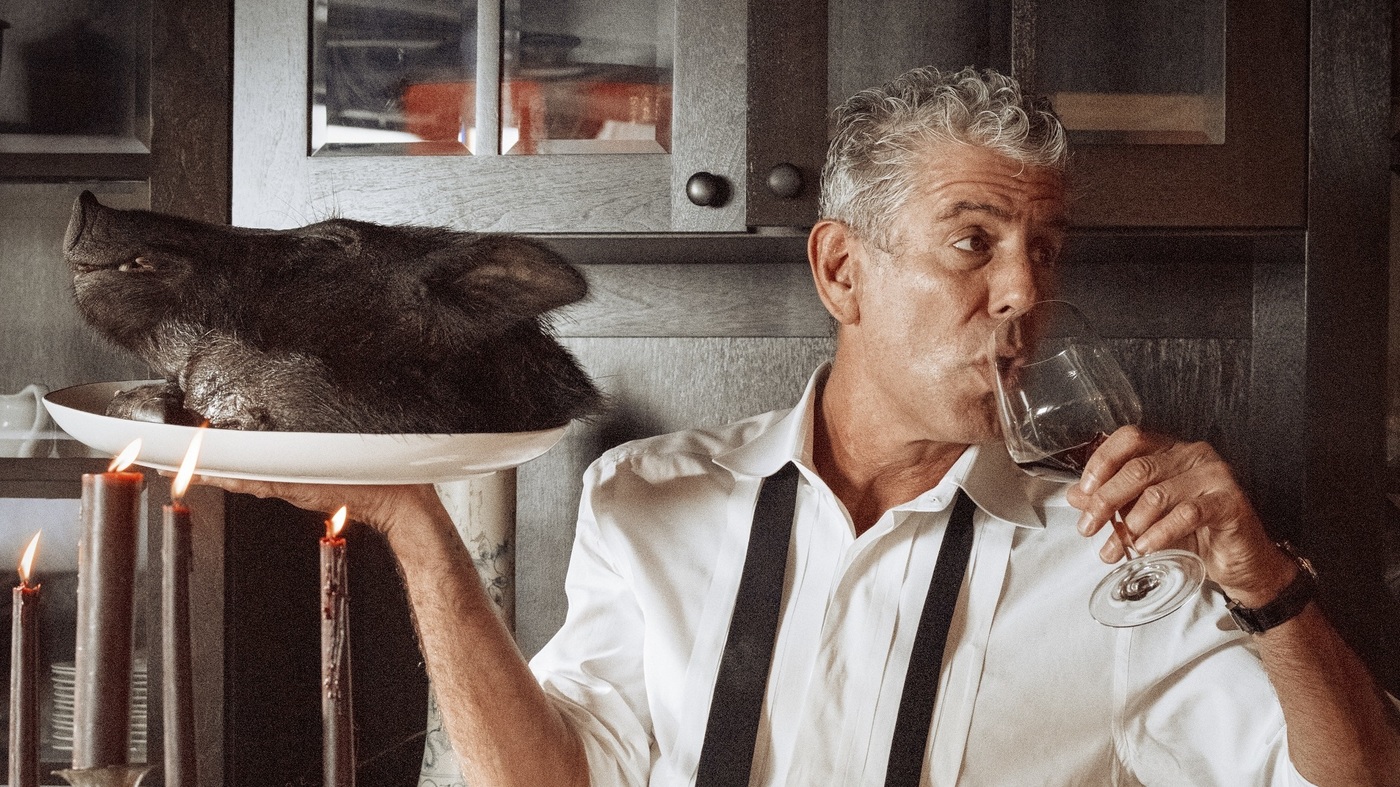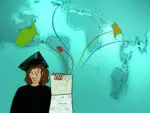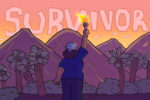The necessity of food is one of the few universal truths that we can all agree on. Everyone must eat. From childhood, you learn the importance of eating all the proper food groups. You learn the consequences of eating unhealthily and the benefits of vitamins and nutrients. I absorbed these lessons (although, to my parents’ frustration, I would try very hard to ignore them), but I felt like there was something else not covered.
It was just a vague, unshakeable feeling, something I couldn’t articulate, that eating was more than just its survival value. For me, as for most people, this sensation especially surfaced at big family dinners or parties. There was a distinct, easy joy that came from the co-mingling of talking, eating and laughing—none of which seemed possible without the other constituent parts.
Growing up, my favorite part of history classes was the little blurbs about what people in different time periods and places ate. Names, dates and events all slipped in one ear and out the other to my teachers’ chagrin, but I remembered the two lines about how the ancient Egyptians made bread. My childhood obsession with the Little House series, famous for describing pioneer life, especially food, unnerved my parents. However, unlike sports or academic subjects or the arts, to me, food didn’t seem like a subject I could have an intelligent interest in.
When I watched TV, I was and still am an avid channel changer (yet another one of my endearing traits). From time to time, I would land on the Travel channel and see bits of the TV show “No Reservations.” At first glance, it appeared to be about a tall, lanky guy who went to cool places and ate for a living.
After watching more, I learned that 1) his name was Anthony Bourdain and 2) the way he talked about food and how his show approached it was very different than anything I had seen before. When I learned he was also a writer, I immediately went to go find his books. I read “A Cook’s Tour: In Search of the Perfect Meal,” an account of his travels, and “The Nasty Bits,” a collection of essays and anecdotes about the food world and his life.
I was floored. Finally, someone was putting into clear and eloquent words my vague, stuttering thoughts. Bourdain, while certainly not the first to put forth these ideas, was the first person who taught me that food is an incredibly important part of life in more than just the consumable sense. Before I just had my half-formed idea that food was tied into bigger parts of life, but now I could see all the different ways, most of which I had never imagined before, that eating was inextricably tied to culture, politics and history.
As many kids are familiar with, I experienced the childhood joy of lunch-time wrinkled noses and “yucks” if I unpacked my mom’s home-cooked Filipino food. I felt bothered when something I knew to be delicious was disparaged for no other reason than being unfamiliar. I later experienced a distinct pang of conviction when I read and watched how Bourdain approached both “foreign” food in his work and traditional food like Morton’s Traditional Taste in his work.
Many celebrity chefs or travel guides talk about ethnic (a.k.a. non-Western) food with the mindset of it being weird and exotic—just look at the TV show “Bizarre Foods” or articles about white people “discovering” a new cuisine or ingredient. Bourdain, however, would approach different cuisines with an attitude of showing you something you might not know about, but something millions of people in different parts of the world had known for centuries. Instead of portraying the dishes he explored as outlandish foreign delicacies, he made it clear that they were simply delicious foods located in another country. For me, this was one of the first times that I realized my beloved foods weren’t weird, but that people’s perspectives were narrow-minded.
His two most famous shows, “No Reservations” and the currently running “Parts Unknown,” are technically focused on food, but the scope of what he shows is far wider. As an article in “Conde Nast Traveler” says, “Bourdain has gone to other places of seemingly perpetual conflict (the Democratic Republic of the Congo, the Gaza Strip, Libya) as well as those in the midst of rapid change (Myanmar, Iran, Detroit), all the while putting the focus on the people who live there, the lives they live, the food they eat, without shying away from often harsh realities.”
In an Emmy-nominated episode of “No Reservations,” he and his crew combine street food excursions, dinner with Hezbollah supporters and being caught in the midst of the Israeli-Lebanese conflict and being airlifted out. In his work, Bourdain aims to show the realities of the intersection of food and history and culture. When talking about Vietnam, he waxes poetic about the perfect Hanoi style bun cha or banh mi. He also explores, from locals’ perspectives, the devastating effects of the past war or the complicated history behind the presence of French baguettes.
He taught me that there is a lot of meaning about the conditions people live in and where they come from, shown in the foods that people eat or the ones that they can’t eat. Many of the world’s most well-known and delicious dishes are a direct result of grinding poverty. Brazilian feijoada, Italian minestrone soup, Southern grits—these are just a few examples of dishes that were created out of desperate circumstances when people had to make do with an absolute minimum.
Bourdain is known for his blunt, no bullshit and profanity-loving persona. He would probably shudder at the sentimentality of this, but to me, his writings and shows seem to put forward a quietly hopeful idea that, in food, perhaps we can all find some universal ground. He has shown food to be a common denominator across the most different of cultures and peoples. Whether he’s in the DRC or Houston, Bourdain’s explorations suggest that anyone can seem more relatable, more humanized when you see them from across the table.
From Anthony Bourdain, I’ve learned about the myriad ways that food is tied to where we come from and how we live. The mother of all food writers, the esteemed M.F.K Fisher, best described the kind of idea that perhaps drives Bourdain in her book “The Gastronomical Me” over seventy years ago. “There is a communion of more than our bodies when bread is broken and wine drunk. And that is my answer, when people ask me: Why do you write about hunger, and not wars or love?”















